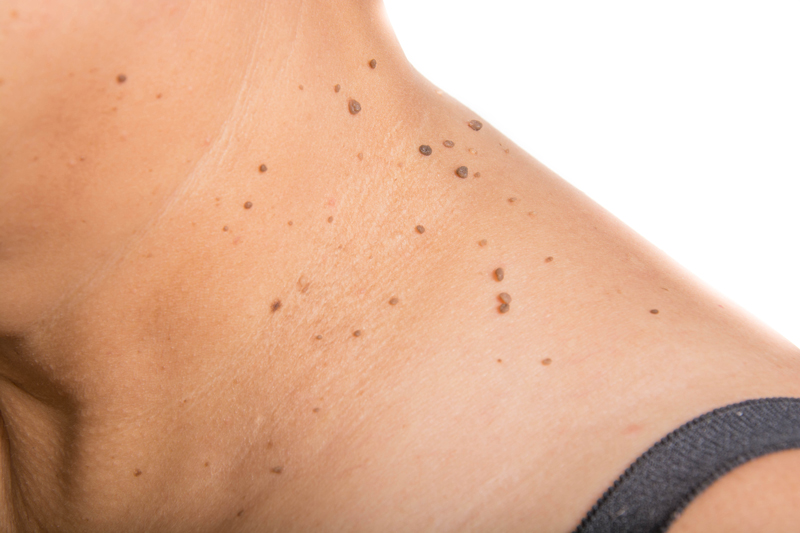
9 Things Everyone Gets Wrong About Dandruff
9 Things Everyone Gets Wrong About Dandruff
Myth #1: Dandruff always comes from having a dry scalp.
If your skin is dry or you’re dealing with a contact dermatitis reaction that results in dry skin, it can definitely cause flaking, itchiness, and even skin peeling.
But having an oily scalp can be a major factor too. That’s because Malassezia yeast—those that are linked to seborrheic dermatitis—feed on the oil (sebum) on your skin and scalp. They thrive when there’s more of it present, making this condition more likely when you have an oilier scalp.
To appropriately treat your dandruff, it’s important to know whether your scalp tends to be oily (or have a lot of product buildup on it) or on the dry side.
Myth #2: Using an oil treatment will make dandruff better.
A hot oil treatment is one of the DIY remedies I found while searching for dandruff solutions on the internet. To see the effects, you’re supposed to apply warm coconut or olive oil directly to the scalp. But does it work? It could help moisturize your scalp if it’s dry. But if your flakes are caused by an oily scalp, “applying more oil will simply give you stickier and greasier flakes,” Anabel Kingsley, a trichologist at Philip Kinglsey Trichological Clinic, tells SELF. “Rubbing oils into the scalp can also cause irritation.”
Myth #3: You should remove any flakes before shampooing.
Flashback to my mom using a rattail comb on my head to dislodge the flakes. But talking to Kingsley, I realized that this wasn’t the right strategy. “If your flakes are so adherent and heavy that they need dislodging with a comb, chances are you have a different and more serious scalp condition,” Kingsley says, such as scalp psoriasis. “Harsh or improper removal of scales can be painful and cause bleeding.” And bleeding leaves your scalp susceptible to infection.
Myth #4: You should wash your hair less often if you have dandruff.
If you assume your dandruff is due to a dry scalp, it might be tempting to cut back on washing it so often. But whether the cause is dryness or oiliness, you should actually be washing your hair pretty regularly to rinse away the flakes and any buildup of debris on your scalp.
Myth #5: You don’t need to exfoliate your scalp.
Exfoliating your scalp every once in a while seems a little extreme, and for most of us it is. But if you’re dealing with dandruff—especially if you think excessive product buildup is playing a role—then an occasional exfoliating treatment may help. Also, it just feels nice!
But beware of DIY scalp scrub recipes, Dr. Kim says, which can contain irritating ingredients or things that are just too harsh. Instead, opt for a product that contains exfoliating salicylic acid, like Scalpicin ($8, Amazon).
Myth #6: You can’t use styling products if you have dandruff.
If you’re battling a dandruff flare, you might think that you should steer clear from adding any styling products to your hair or scalp. And in general it is a good idea to investigate the products you’re using to make sure they aren’t irritating. If you can, it’s also smart to cut back on the amount of styling products you’re using to minimize the chance of a bad reaction or exacerbating the one you’re currently dealing with.
But that doesn’t mean you can’t use any styling products ever! As long as you’re washing your hair regularly—ideally, daily—to prevent buildup, then you can go ahead and keep styling your hair with the products you enjoy.
Myth #7: Dandruff does not affect hair growth.
There isn’t a ton of research in this area. But what we have suggests that, while dandruff doesn’t cause hair loss directly, it is associated with hair loss—especially in people who are already dealing with some level of hair loss or thinning. The link isn’t totally understood, but some experts think that dandruff may interfere with the normal hair shedding cycle. And it makes sense that constantly itching your scalp could disrupt your already fragile hair and lead to hair loss. If you’re already dealing with some hair loss, it’s especially important to effectively manage your dandruff to prevent further hair issues.
Myth #8: Dandruff is worse in the summer.
In truth, there’s no real seasonality to dandruff. Some people get it more in the winter, when the air is less humid, causing a sweaty yet dry scalp. And most people cut down on shampooing due to the cold temperatures, which can also make the buildup of products and flakes on their scalp worse. Other people find that hot, humid weather in the summer makes their dandruff worse, possible because their scalps are oilier with sweat. And yes, some people deal with dandruff year-round.
Myth #9: All flakes are a sign of dandruff.
As we mentioned, there are many conditions that can cause dandruff-like flaking. If you notice flakes on your scalp or in your hair, it could be due to one of the following:
Seborrheic dermatitis is another condition that can cause dandruff and flaking of the scalp. It often appears as red, swollen, greasy rash that may have white or yellow flakes or crust. Also, as Dr. Kim notes, seborrheic dermatitis is not just limited to the scalp; you can find flaky patches in your brows, beard, ears, chest, and other skin folds.
Contact dermatitis is a reaction to something that’s either irritating to your skin or something that you’re allergic to. In either case it typically causes a red rash that may itch, burn, and swell. It can also cause the skin to become itchy and dry, possibly resulting in peeling or flaking. If you’re experiencing contact dermatitis on your scalp, it could be due to a reaction to a shampoo, conditioner, or styling product.




